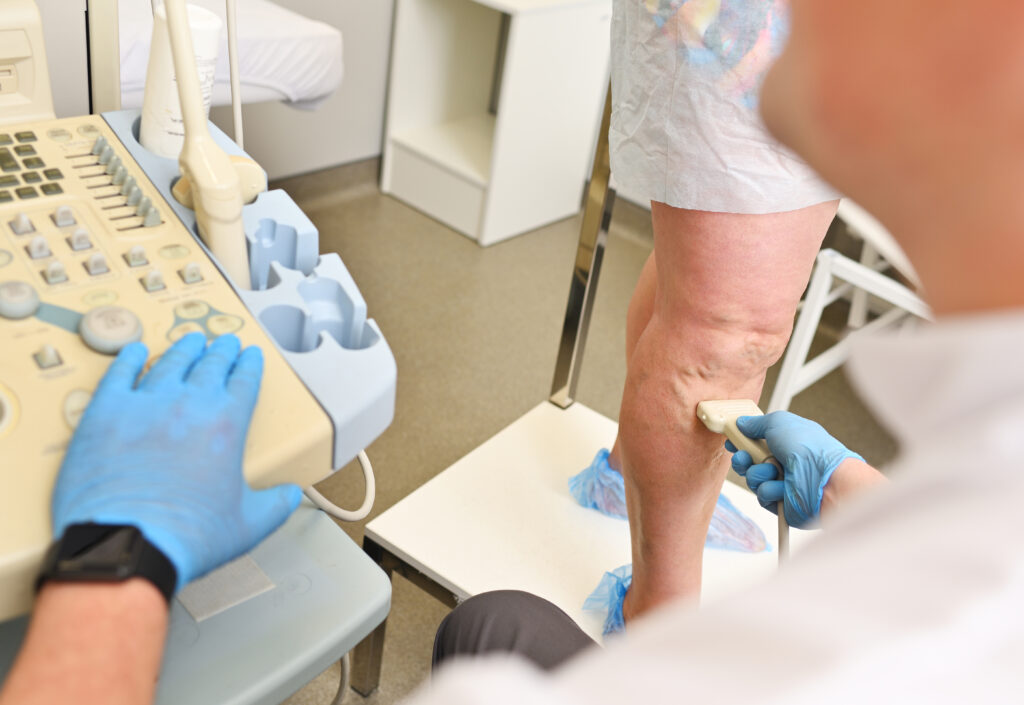Vein Complications and their Implications
Many people suffer from venous insufficiency, a condition that affects the proper blood flow in the veins. Venous insufficiency affects many people as they age, but the problem can be treated if detected early. When left untreated, venous insufficiency can result in vein complications that can lead to severe discomfort, pain, and other issues. In this blog post, we will take a closer look at these vein complications and what they mean for patients.
Chronic swelling and edema: One of the most common complications of venous insufficiency is chronic swelling and edema. This occurs when the valves in the veins don’t close properly, causing blood to pool in the legs and leading to fluid buildup. This swelling can cause discomfort and pain, and can even lead to skin damage and infections. Patients with chronic swelling and edema may require compression therapy, lifestyle changes, and other treatments to manage their symptoms.
Skin changes and discoloration: Another complication of venous insufficiency is skin changes and discoloration. As blood pools in the legs, it can cause red blood cells to leak into the surrounding tissues, leading to brownish discoloration of the skin. Over time, this discoloration can become permanent and may require more advanced treatments to manage. Patients with skin changes and discoloration may also experience itching, pain, and other discomforts.
Leg ulcers: A more severe complication of venous insufficiency is the development of leg ulcers. These ulcers can be painful and difficult to treat and can even become infected if not managed properly. Patients with leg ulcers may require advanced treatments such as skin grafts or surgery to manage their symptoms.
Blood clots: In some cases, venous insufficiency can lead to the development of blood clots, which can be life-threatening. When blood flow is disrupted, it can cause blood to clot in the veins, which can travel to the lungs and cause a pulmonary embolism. Patients with a history of venous insufficiency may be at increased risk of developing blood clots and should seek medical attention if they experience any symptoms such as chest pain, shortness of breath, or leg swelling.
Increased risk of infection: Finally, venous insufficiency can increase the risk of developing infections in the affected area. Chronic swelling and edema can create an environment that is conducive to bacterial growth, leading to skin infections and other issues. Patients with venous insufficiency should take steps to keep their skin clean and dry and should seek medical attention if they notice any signs of infection such as redness, warmth, or drainage.
Overall, venous insufficiency can lead to a variety of vein complications that can affect a patient’s quality of life. However, these complications can be managed with the right treatment and lifestyle changes.
At the West Florida Vein Center, we offer a range of treatments for venous insufficiency and its associated complications, and we’re committed to helping our patients achieve optimal health and comfort. If you’re suffering from venous insufficiency or any of its associated vein complications, don’t hesitate to reach out to us today at 727-772-3233.


 Under the expert guidance of our Board Certified Vascular Surgeon, Dr. Mark Zuzga, our team of Vein Specialists & Vascular Experts are committed to delivering top-tier outpatient vascular & vein evaluation and treatment throughout the greater Tampa & West Florida surrounding areas. Should you find yourself dealing with leg pain, swelling, ulcers, discoloration, or the appearance of spider and varicose veins, we invite you to request a screening today
Under the expert guidance of our Board Certified Vascular Surgeon, Dr. Mark Zuzga, our team of Vein Specialists & Vascular Experts are committed to delivering top-tier outpatient vascular & vein evaluation and treatment throughout the greater Tampa & West Florida surrounding areas. Should you find yourself dealing with leg pain, swelling, ulcers, discoloration, or the appearance of spider and varicose veins, we invite you to request a screening today